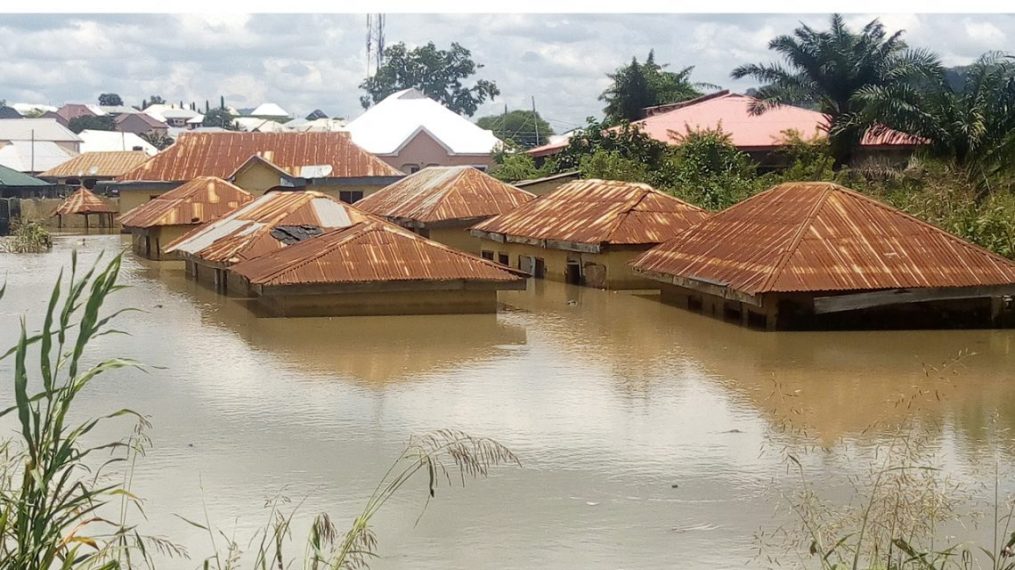A catastrophic dam collapse has left thousands of people homeless and struggling to survive in Maiduguri, north-eastern Nigeria. The Alau Dam, located 20km south of the city, gave way after heavy rains, releasing a massive amount of water into the city and surrounding areas. The disaster has affected over a million people, with many more at risk of disease and hunger.
The floods have caused widespread destruction, with homes, businesses, and public structures, including hospitals and the prison, severely affected. The city’s sewer network has been badly damaged, contaminating water sources and raising concerns about the outbreak of waterborne diseases. The authorities are scrambling to rescue people and bodies trapped in buildings, while aid agencies are working to provide essential supplies to those in need.
The Borno state government has set up four camps to accommodate the displaced, but many thousands of people are still struggling to find shelter and food. The situation is dire, with families sharing what little food they have and children going hungry. Fatima Yakubu, a 26-year-old mother of six, is among those seeking refuge at the Bakassi Camp. “I woke up at 1am when I felt water on my legs,” she told the BBC. “It was rising very fast, and I was so scared. I thought I was going to die with my children.”
The collapse of the sewer network has raised concerns about the outbreak of waterborne diseases, including cholera and typhoid fever. The state governor has announced a special health team to analyze the situation, and international partners, including the World Health Organization, have promised to support the government.
The reconstruction of the damaged dam is a huge project that will require federal government assistance. For now, the people of Maiduguri are left to pick up the pieces and try to rebuild their lives. The disaster is a stark reminder of the devastating impact of climate change and the need for urgent action to mitigate its effects.
Aid agencies are working to provide essential supplies, including food, water, and shelter, to those affected by the disaster. The National Emergency Management Agency (NEMA) has promised to start distributing food soon, in addition to what the state government is doing. The state governor has also distributed 10,000 naira ($6; £5) to the head of each household as an immediate relief package.
The disaster highlights the need for long-term solutions to address the impact of climate change in Nigeria. The government must invest in infrastructure, including dams and sewer networks, to prevent such disasters in the future. The international community must also provide support to help Nigeria adapt to the changing climate.



